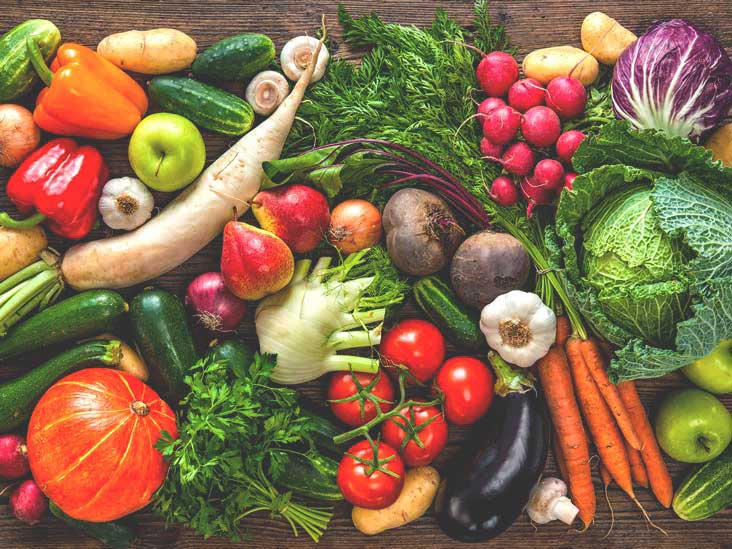Entering old age, it is not uncommon for the elderly or the elderly to lose their appetite or reduce food portions, whether intentionally or not. The causes are varied, ranging from decreased function of the sense of smell and taste, impaired digestive tract function, to poor emotional conditions due to depression or decreased brain function. If this continues, malnutrition or malnutrition can occur in the elderly and increase the risk of various diseases. So, as a companion, how do you determine the food menu and meal portions for the elderly?

Fruits and vegetables
Five servings of fruits and vegetables per day. Or, it can be divided into 150-250 grams of fruit per day and 200-350 grams of vegetables per day. Usually, the choice of fruit for the elderly is soft in texture and does not taste sour, for example papaya, banana, dragon fruit, or avocado. While vegetable choices for the elderly include pumpkin, spinach, kale, oyong, cucumber, carrots, broccoli, lettuce, and other green vegetables.
Oil, sugar and salt
Use 5 teaspoons of oil. Limit the use of sugar to only 4 tablespoons and salt to only 1 teaspoon. For the use of sugar and salt, you need further consultation with a doctor, especially if the elderly have hypertension or diabetes.
The nutritional needs above may vary for each elderly, especially those who have certain health problems. But in essence, fill your plate with foods rich in carbohydrates, plant and animal protein, vegetables, and fruits.
All of these elements must be available every time the elderly eat. Do not forget to set meal times, at least three main meals and two interludes between main meals. Apply the principle of eating small portions but often.
Staple food
Staple foods that are a source of carbohydrates can help the elderly to be active. For example, staple foods can be rice, wheat, corn, cassava, sago, potatoes, taro, breadfruit, vermicelli, and noodles. The portion is 150-300 grams per day. This amount can be divided into three, so for example you eat breakfast just take 100 grams of rice or one scoop of rice.
Source of protein and minerals
Food sources of protein in the elderly diet, including chicken, fish, meat, beef liver, chicken liver, eggs, tofu, oncom, and tempeh, amounting to 150-200 grams per day. You can add milk or dairy products, such as cheese and yogurt, as much as 3 cups per day. Choose fat-free or low-fat milk and dairy products.